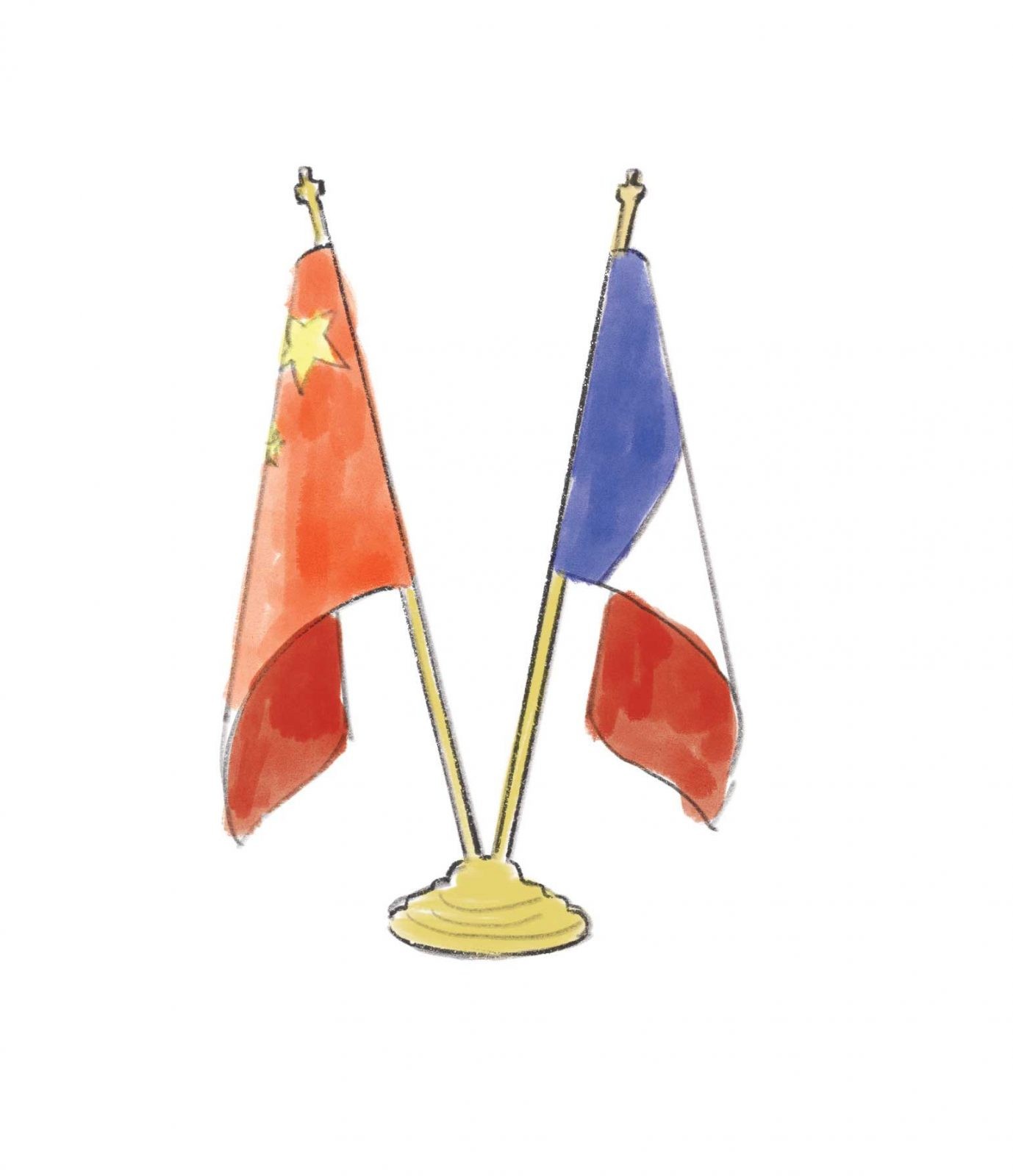
2004 Intake
There’s a picture of Bernard Flory on his LinkedIn profile.
In it, he’s sitting on one side of two long tables arranged facing each other, in a grand, lavishly- decorated room, with Chinese delegates on either side. Six large bamboo plants line the room’s back wall.
It’s formal; everyone is suited. Each participant has a microphone, a bottle of water, and notes impeccably arranged on the table in front of them. Bernard is representing a local French municipality looking to develop a partnership with a province in China. He’s the only Westerner in the room.
It’s an image that encapsulates Bernard’s personal brand. Since completing his MBA in 2005, he’s provided legal counsel for foreign companies investing in China, and for Chinese companies investing in Europe.
He’s worked to develop China-France relations at local government level. He’s strategized mergers and acquisitions, and helped Western firms with their brand development and public relations strategy in the East.
For over a decade, he’s worked as a bridge between East and West; Europe and China. And it all started at CKGSB.
Falling for China
Growing up, both of Bernard’s parents were professors of law at the University of Provence in the South of France. Bernard’s father headed up international relations at the university and, throughout his childhood, Bernard would encounter exotic dinner guests and foreign dignitaries hosted by his father in the family home.
But his interest in China started later. Bernard followed his parents’ footsteps into law, working as a corporate lawyer for Charbonnages de France, a former major state-owned coal mining group, in Paris.
By the early 2000s, the company was facing liquidation—there was no coal left to sell. Bernard realized it was the right time to try something new. He wanted to gain more business knowledge, after having advised M&A transactions on the legal side, and, as part of his compensation package, his company was offering to pay for an MBA.
Before long, he was on a plane to CKGSB in Shanghai. Around that same time, he met a Chinese girl, working for his firm’s sister company in Paris.
“Although she was Chinese, she spoke perfect French and had an amazing knowledge of France—I was so impressed that she became my wife!” he laughs.
“She also introduced me to Chinese culture,” he continues. “I knew China was an emerging country with a double-digit growth rate each year, and I wanted to experience it for myself.”
A gateway to the East
When Bernard joined CKGSB in 2004, he was one of only two international students in the class. Dominated by quant-savvy Chinese, the class average GMAT score was around 780.
At first, the pace of life in China, and the language barrier, was a challenge. But CKGSB’s English-language MBA program helped Bernard to adapt. Conferences were held and senior executives were brought on campus to advise students on how to succeed in business in China. CKGSB’s professors—Asian executives working for big corporates in Greater China and academics from elite US universities like Harvard and Berkeley—highlighted the intricacies of developing business in the East.
“We even had a professor of finance from Stanford who was previously president of the Merrill Lynch group,” Bernard recalls.
What Bernard learned about business in China during his MBA, he started to impart to others after CKGSB. He joined a Chinese law firm in Beijing, and carved out a career in legal consulting, facilitating trade and investment between Europe and China.
“I couldn’t have started a career in China without the MBA,” he says. “Companies want to know that you’ve studied and got an understanding of the business environment in China—that was especially important from the perspective of the law firm I joined.
“Back in France, I had fixed working hours, a good salary, and six weeks of vacation. But I wanted more of a challenge,” he continues.
“In China, your salary is often based on the value you create. That changes your mindset—you have to work harder and be constantly alert. It’s a much more challenging, fast-paced, entrepreneurial environment, but you get out of it what you put in.
“That’s why China is a country of entrepreneurship. The Chinese respect people who create something for themselves—like what Jack Ma did with Alibaba.”
Bridging the gap
Bernard then worked as the managing director of a business strategy company in Beijing, becoming a bridge between Europe and China, before working with two former colleague to develop his own consulting business, Hong Kong Trend Star, which focuses on inbound/outbound investment projects with European and Chinese firms.
Operating in China isn’t always straightforward. There are legal complications for companies, issues over brand protection, and the complex art of Chinese business negotiation to navigate, as well as the concept of “guanxi”- forging and developing relationships. But, in China, the opportunities still exist.
“When I arrived in China, I realized that any preconceptions I had were totally wrong,” Bernard continues.
“China still keeps its emerging economy tag but, in some industries, it is far more advanced than the West. Electric cars are a big thing for the automotive industry in Western Europe, for example. But what a lot of Western people don’t know is that Western car firms are taking technology from the Chinese.”
China is planting a Godzilla-like footprint on the global economy—disruptive Chinese firms, like Alibaba and Tencent, are expanding internationally. As China grows, there’s an increasing need for professionals who can operate in a changing global business environment; who can work as a bridge between East and West.
The MBA at CKGSB has helped Bernard become that bridge.
Written by Marco De Novellis from Business Because